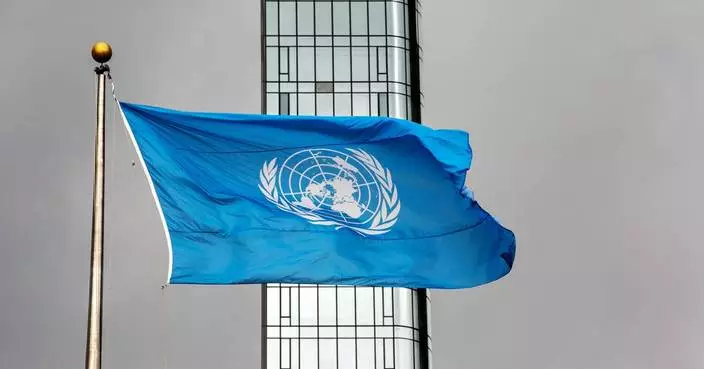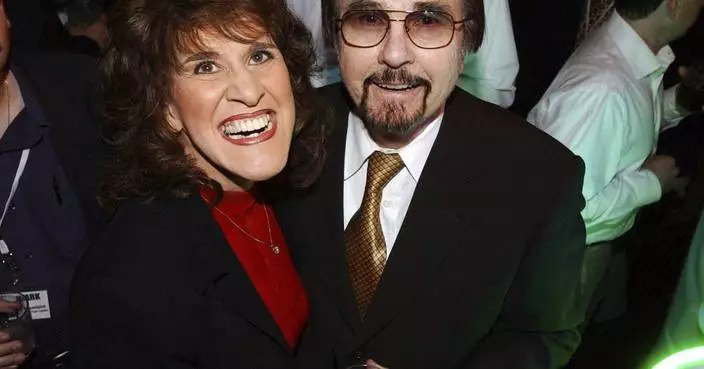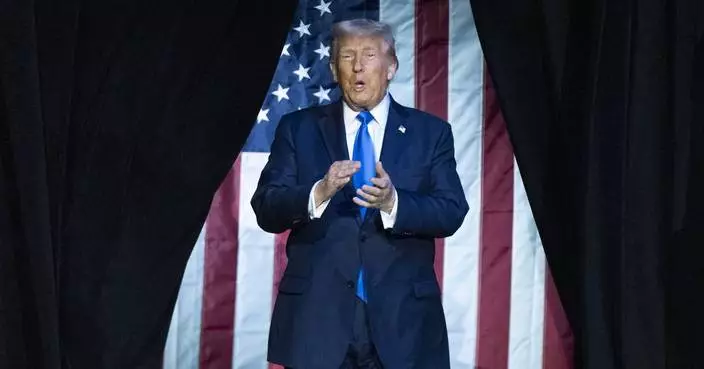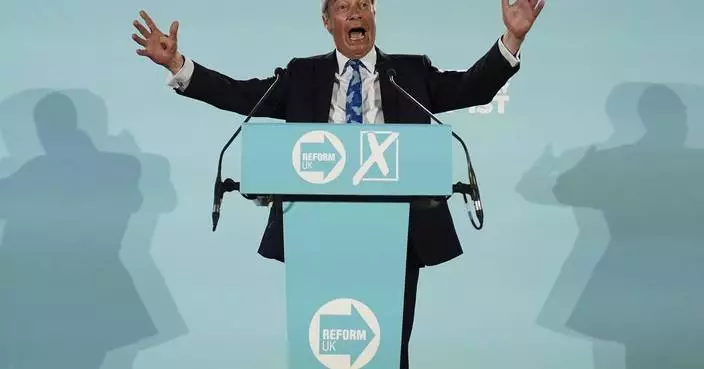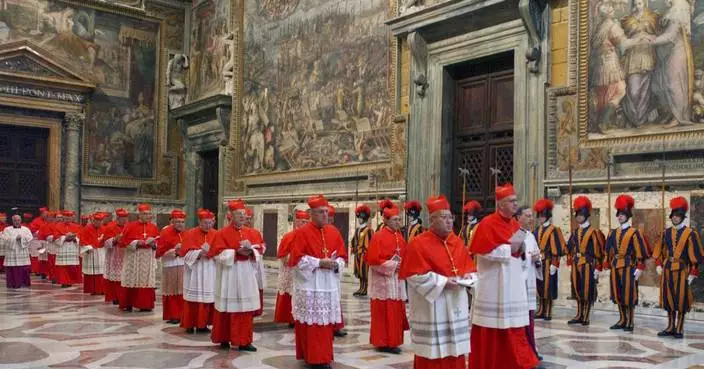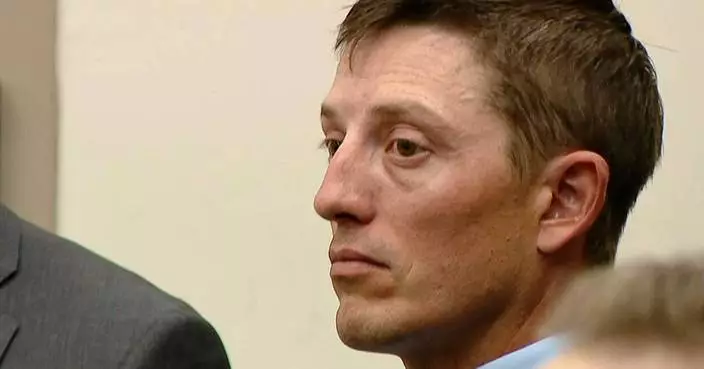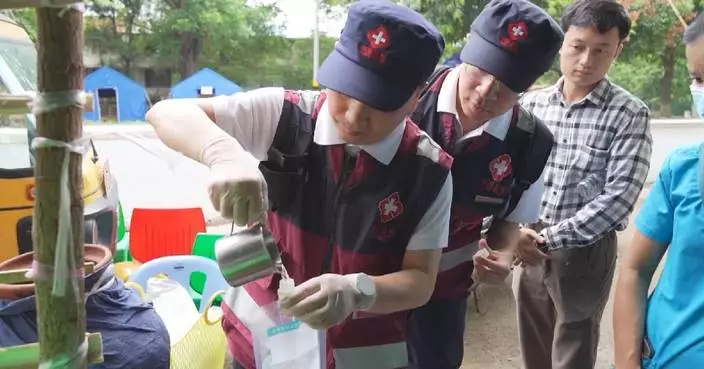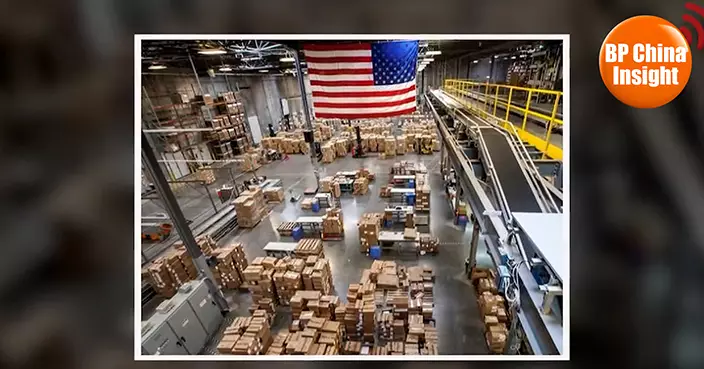NEW YORK--(BUSINESS WIRE)--Apr 16, 2025--
Levels, a software company that helps members optimize their health through robust data and personalized guidance, today announced a partnership with Season Health to offer Levels members access to 1-1 dietitian coaching through the Levels app. This new feature addresses one of the top requests from Levels members: nutrition guidance that accounts for individual needs, preferences, and health goals. And comes at a time when almost 50% of consumers say they feel confused about nutrition advice.
This press release features multimedia. View the full release here: https://www.businesswire.com/news/home/20250416596661/en/
Through this partnership, Levels members can now schedule directly with a Season Health registered dietitian nutritionist (RDN) via the Levels app. Dietitians will have access to members’ glucose readings and food logs, allowing them to deliver customized nutrition advice and actionable insights. In early trials, up to 90% of Levels members had their sessions covered by health insurance, so most members will receive this service as part of their membership with no additional cost.
“Our members have consistently asked for nutrition guidance beyond general dietary principles,” said Josh Clemente, President and Co-founder of Levels. “By partnering with Season Health, we’re providing access to accredited, science-backed, nutrition professionals who can interpret their unique data and help them make sustainable dietary changes. This directly supports our mission of helping members reach their health goals.”
The collaboration addresses a critical need in the fight against metabolic dysfunction. Research consistently demonstrates the effectiveness of dietitian support in enhancing health outcomes, from improving condition management and weight loss to boosting overall dietary quality.
Registered dietitian nutritionists undergo extensive education and clinical training, including a bachelor’s degree, graduate-level dietetics program, competitive practice internship, and certification exam.
“Beyond simply providing information, RDNs act as partners in health,” says Aubrey Uhling, a Registered Dietitian Nutritionist (RDN) at Season Health. “In today’s information overload, RDNs can help members cut through the noise and with evidence-based nutritional guidance. This clarity alone can empower people to make informed choices.”
About Levels
Levels helps members reach their health goals with AI-powered food logging, habit tracking, and custom insights. Members can add tools like continuous glucose monitors, dietitian coaching, and lab tests for a more complete picture of their health. Levels is an a16z-backed health tech startup founded in 2019 that’s leveraging wearable biosensors and testing to provide feedback on how members can use diet and lifestyle choices to reach optimal health.
The Levels Advisory Board includes key thought leaders, clinicians, and researchers in metabolic health, including Ben Bikman, PhD; Dom D’Agostino, PhD; Dr. Sara Szal Gottfried; Dr. Robert Lustig; Dr. Casey Means; Dr. David Perlmutter; and Dr. Terry Wahls.
About Season Health
Season Health is the only integrated clinical nutrition solution that drives engagement, outcomes, and cost-of-care reduction across populations, powered by its food-as-medicine platform. With one of the largest networks of registered dietitians and a curated food market of national and local vendors, Season empowers individuals and their families to make informed, sustainable choices, measurably improving both health outcomes and quality of life. Learn more at www.seasonhealth.com.


Levels Partners with Season Health to Offer Members 1-1 Insurance-Covered Dietitian Support
TALLINN, Estonia (AP) — The discussions have taken place in an ornate Kremlin hall, on the polished marble of St. Peter’s Basilica and in a famously contentious session in the Oval Office of the White House.
What’s emerged so far from the Washington-led effort to end the war in Ukraine suggests a deal that seems likely to be favorable to Russia: President Donald Trump has sharply rebuked Ukrainian President Volodymyr Zelenskyy, echoed Kremlin talking points, and indicated Kyiv would have to surrender territory and forego NATO membership. What’s more, he has engaged in a rapprochement with Moscow that was unthinkable months ago.
More recently, Trump has offered mixed signals — social media posts that perhaps Russian President Vladimir Putin is stringing him along — and a deal has yet to materialize.
While the optics so far have been in the Kremlin’s favor, no proposals that were put forth have been cemented.
And on Wednesday, Washington and Kyiv signed an agreement granting American access to Ukraine’s vast mineral resources that could enable continued military aid to the country under ongoing attacks from Russia.
Zelenskyy said Thursday the deal was the first result of his “truly historic” meeting with Trump at the Vatican before the funeral of Pope Francis.
One gain for the Kremlin is that Washington is talking again to Moscow after years of extremely strained ties following its 2022 invasion of Ukraine — and not just about the war, said Nikolay Petrov, senior research fellow with the New Eurasian Strategies Centre think tank.
Russian officials and state media from the very start of discussions with Trump’s officials sought to underscore that Ukraine was only one item on the vast agenda of the “two superpowers.” Trump and Putin talked in March about Ukraine but also the Middle East, stopping the proliferation of strategic weapons and even organizing hockey games between the countries.
Russia's main state TV channel reported that the meeting between Putin and Trump envoy Steve-Witkoff showed that Moscow and Washington were building “a new structure of the world” together.
In this sense, “Putin already got a part of what he sought” — the optics of Russia as a country that is on par with the U.S., Petrov said.
Trump has said Crimea, the Ukrainian peninsula Moscow illegally annexed in 2014, “will stay with Russia,” and outlines of a peace proposal his team reportedly presented to Kyiv last month apparently included allowing Russia to keep control of other occupied Ukrainian territories. Trump, who had a contentious meeting with Zelenskyy in the Oval Office on Feb. 28, lashed out at him for publicly rejecting the idea of ceding land, and also said that Kyiv was unlikely to ever join NATO.
All of these reflect Moscow’s long-held positions, and Trump’s echoing of them suggested his administration’s vision was aligned with the Kremlin’s.
Trump also seemingly puts more pressure on Kyiv than Moscow in trying to reach a peace deal and appears eager to return to a more normal relationship with Russia and its “big business opportunities," said Sam Greene of King’s College London.
“Is there any part of this that doesn’t look like a win for Russia? No,” Greene adds.
But so far, all of this has remained nothing but rhetoric, with terms of a possible settlement still very much “in the air,” says Sergey Radchenko, a historian and a professor at the Johns Hopkins School of Advanced International Studies.
Moreover, there are still demands by both Russia and Ukraine that would be hard to reconcile in any kind of peace settlement.
Ukraine refuses to cede any land and wants robust security guarantees against future aggression, possibly involving a contingent of peacekeepers -– something a handful of European nations have been discussing and Russia publicly rejects as a nonstarter.
Russia, in turn, demands that it holds onto the territory it has seized as well as no NATO membership for Ukraine. It also wants Kyiv to “demilitarize,” or significantly reduce its armed force.
Radchenko sees the latter as a major sticking point in peace talks, because a strong, viable army is important for Ukraine to defend itself.
“If there are restrictions on the kinds of weapons Ukraine can receive (from the West) or the size of the army, then it will be very difficult to get them to accept this sort of agreement,” he said.
Russian Foreign Minister Sergey Lavrov seemingly raised the stakes further this week by saying that international recognition of regions annexed from Ukraine by Russia was “imperative” for a peace deal.
Achieving that remains unclear, given that dozens of countries have decried the annexations as violating international law.
Some analysts believe it is in Putin's interest to prolong the war and keep making gains on the battlefield.
Trump, Vice President JD Vance and Secretary of State Marco Rubio have threatened to wash their hands of the peace effort if there is no progress soon.
Putin, in an apparent gesture of willingness to keep talking, announced this week a 72-hour ceasefire starting May 8 for Russia's Victory Day holiday that marks the defeat of Nazi Germany in World War II.
Zelenskyy dismissed the gesture as a further attempt by Putin at “manipulation” to string along the U.S., saying a ceasefire should begin immediately and last longer.
Greene noted that the Russian ruble and markets have been doing better recently over expectations of a peace deal and U.S. businesses and investors coming back, "and there may be a price to be paid” for pulling out the rug from under that.
The larger question is what happens on the battlefield if the Trump administration withdraws from the peace effort.
“When the Trump administration says they’ll walk away, we don’t know what that means. Does that mean they walk away from negotiations and keep supporting Ukraine?” Greene said.
Greene says that Ukraine probably doesn’t feel confident that the U.S. stepping back from the process means that Washington will keep supporting Kyiv, adding that Russia may not be sure of the Trump administration ending aid, either.
“I think it’s very difficult for the Kremlin to calculate the risks of dragging this out,” he said.
And U.S. Treasury Secretary Sctott Bessent said the mineral deal "signals clearly to Russia that the Trump administration is committed to a peace process centered on a free, sovereign, and prosperous Ukraine over the long term.”
A lot depends on whether Europe can step up and fill any gaps in U.S. aid.
If Trump walks away from the peace effort and still pursues normalizing relations with Russia, lifting sanctions, “this will amount to a major breakthrough” for Putin, but it's not a given, Radchenko says.
That would be an uphill battle for Trump as “there’s a lot of congressional sanctions that are predicated on the war in Ukraine,” Greene notes.

FILE - In this photo provided by Ukraine's 93rd Kholodnyi Yar Separate Mechanized Brigade press service, a soldier looks out of a shelter on the anti-drone firing position in Kostyantynivka, the site of the heavy battles with the Russian troops in the Donetsk region, Ukraine, April 24, 2025. (Iryna Rybakova/Ukraine's 93rd Mechanized Brigade via AP, File)
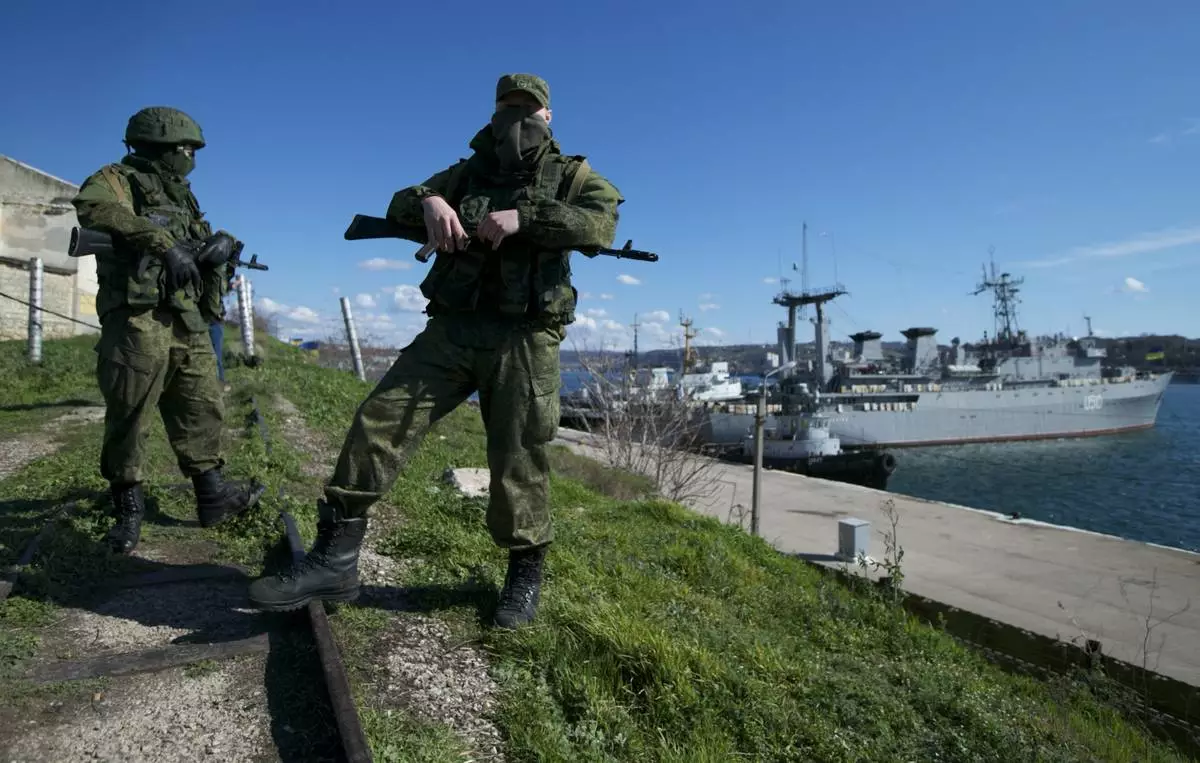
FILE - Russian soldiers guard a pier where two Ukrainian naval vessels are moored, in Sevastopol, on the Crimean Peninsula, March 5, 2014. (AP Photo, File)
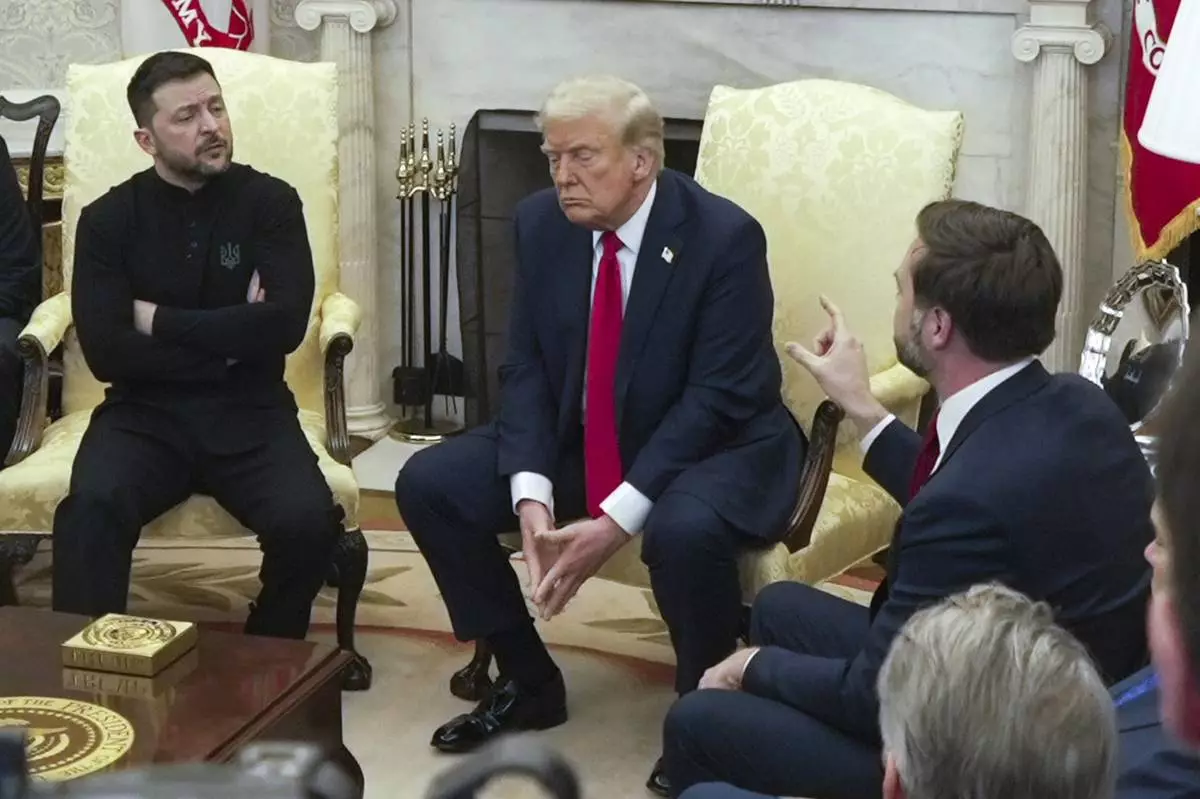
FILE - Vice President JD Vance, right, speaks with Ukrainian President Volodymyr Zelenskyy, left, as President Donald Trump listens, in the Oval Office at the White House, Feb. 28, 2025, in Washington. (AP Photo/ Mystyslav Chernov, File)
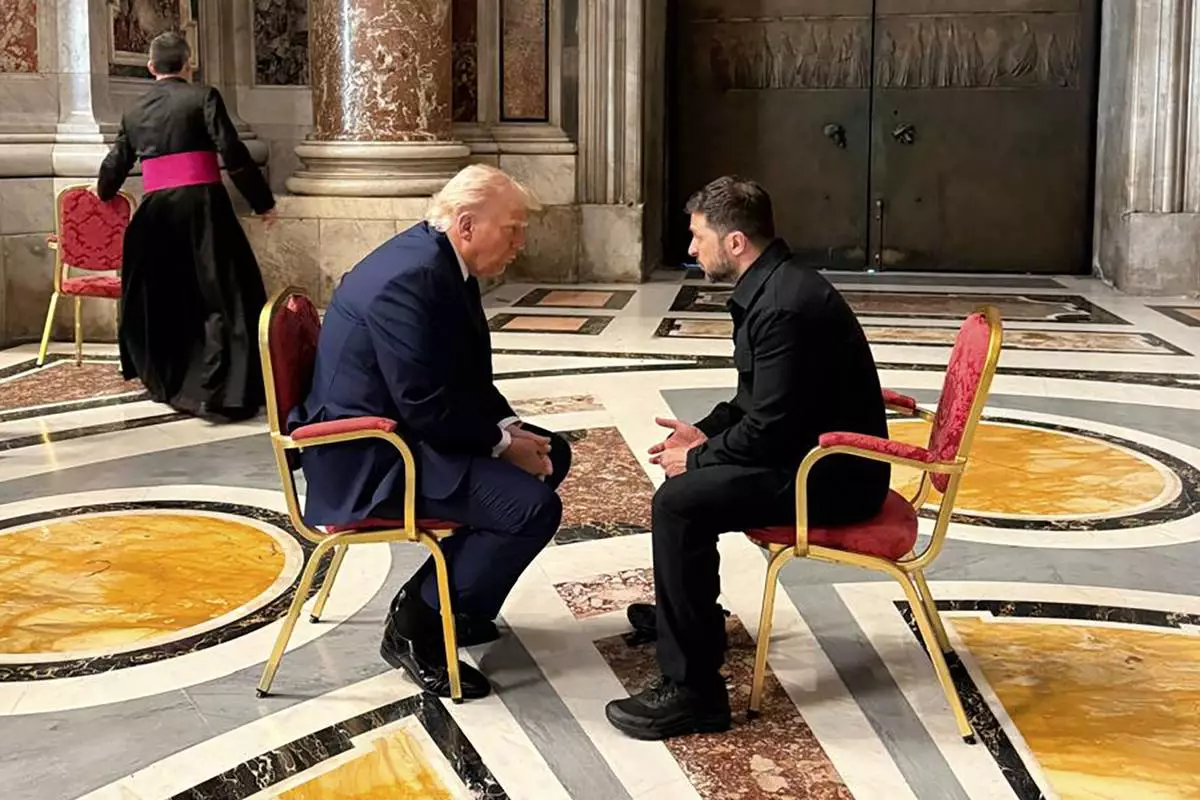
FILE - In this photo provided by the Ukrainian Presidential Press Office, President Volodymyr Zelenskyy, right, and President Donald Trump, talk as they attend the funeral of Pope Francis in St. Peter’s Basilica in Vatican City, April 26, 2025.(Ukrainian Presidential Press Office via AP, File)
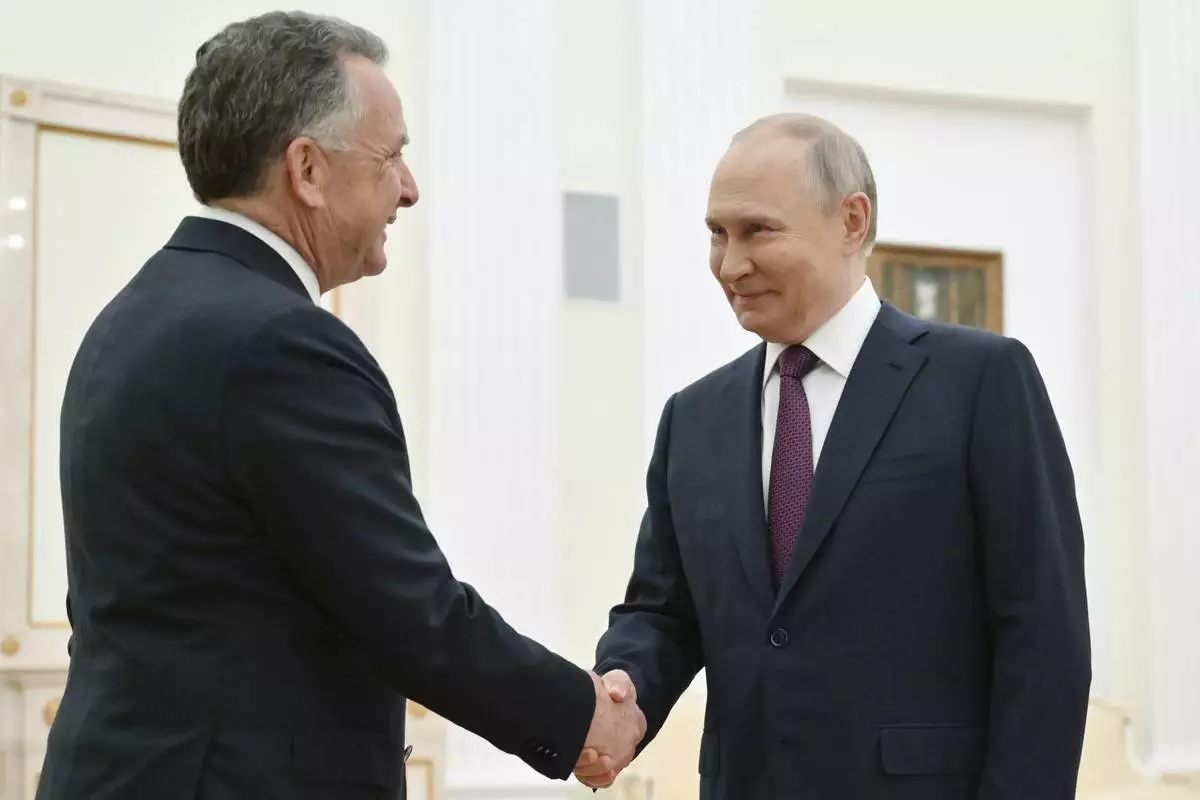
FILE - Russian President Vladimir Putin, right, and U.S. special envoy Steve Witkoff greet each other prior to their talks at the Kremlin in Moscow, Russia, April 25, 2025. (Kristina Kormilitsyna, Sputnik, Kremlin Pool Photo via AP, File)
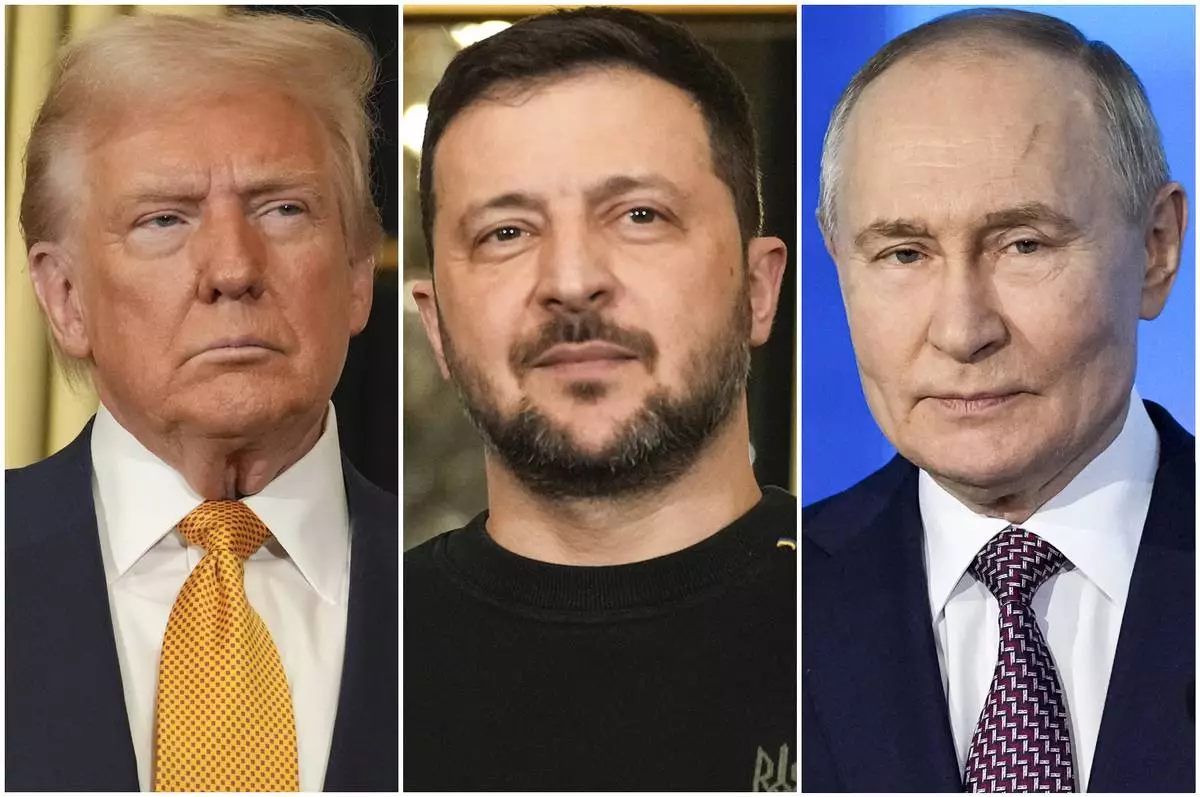
FILE - In this combination of file photos, President Donald Trump, left, and Ukraine's President Volodymyr Zelenskyy, center, are seen at the Elysee Palace, Dec. 7, 2024 in Paris, and President Vladimir Putin, right, addresses a Technology Forum in Moscow, Feb. 21, 2025. (AP Photo/Aurelien Morissard, left and center, Pavel Bednyakov, right, File)












